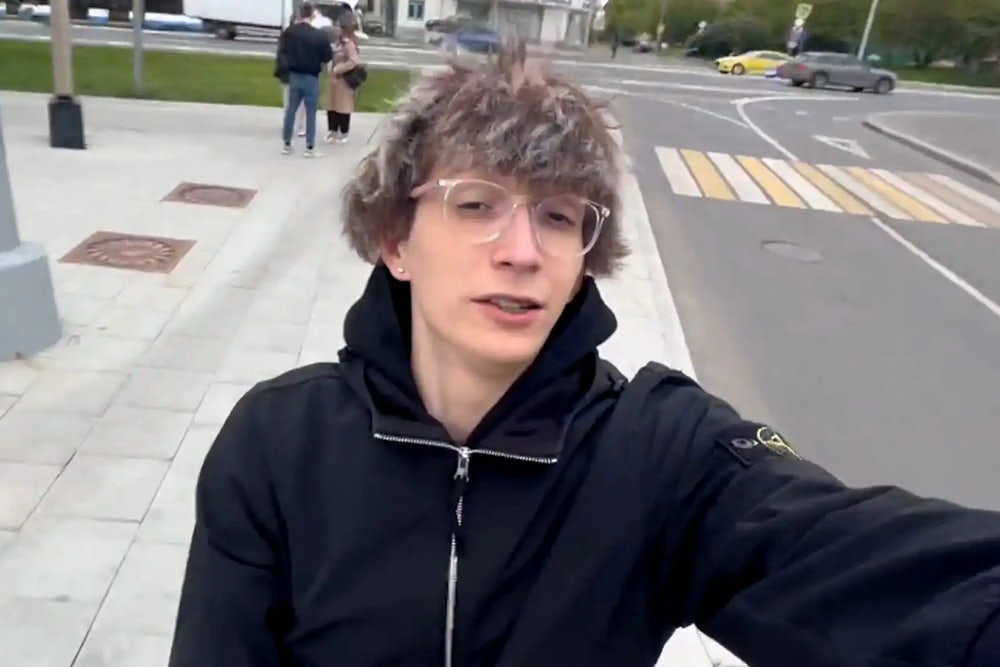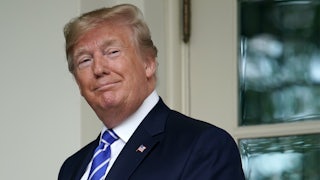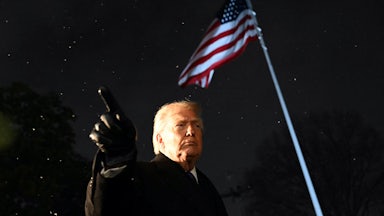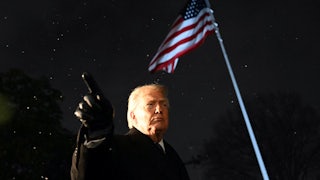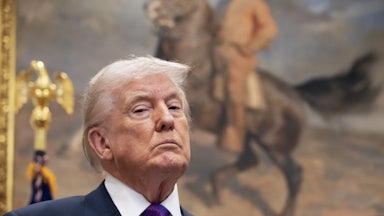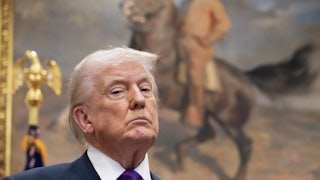It was Daniil Orain’s twenty-second birthday last July, and he and his team from the YouTube channel “1420” were out on a Moscow street asking Russians on camera about a video allegedly showing a Ukrainian POW being mutilated and tortured.
“I heard about this news, but due to the laws, it’s not safe to answer some questions,” said a young woman. Several other respondents answered that Russia shouldn’t torture prisoners.
A young man said, “We can torture bad people.” Orain pulled out his phone and showed the news, and the man leaned in to see. “It depends on how bad the person is,” he responded, adding that rapists and drug dealers should have their hands cut off. Orain followed up: “And some Ukrainian soldiers too?” The man responded: “Yes.”
The exchanges were typical for Orain’s channel, which he started in 2019, asking
Russians about lifestyle topics as well as more sensitive issues like jailed
opposition figure Alexei Navalny and LGBTQ rights. Since Russia launched a
full-scale invasion of Ukraine, his team working inside Russia has shot dozens
of videos asking Russians on the street about the invasion during official
wartime censorship, which punishes those alleged of “discrediting”
the Russian military with prison time.
As the Ukraine war has ground on for over a year, Russia has intensified its crackdown on dissent. After almost entirely jailing, killing, or forcing into exile the political opposition and muzzling independent media, Russian authorities have punished ordinary people for mere displays of dissent, like signs that say “No to War.” For example, a 13-year-old girl who drew an antiwar drawing at school was recently separated from her father, a single parent, who faces a two-year prison sentence for “discrediting” the army.
Orain left the country after the invasion and then returned, and left the country during last fall’s mobilization, and is not the one behind the camera. His team, who are bylined by first name only, ask the questions.
The risks of speaking out against the war on camera are real but unclear. Although Russian media outlets have reported cases of people on the street charged with “discrediting the army” for participating in street interviews, none of these reports have been confirmed. As of late February, close to 6,000 Russians have been charged with “discrediting” the Russian Army, according to OVD-Info, a human rights monitor, about a third of them due to social media comments.
As censorship has tightened, the team has done some anonymous interviews, blurring faces and disguising voices. While some respondents still show their loyalty to the regime, other people say what they think about Putin. “I believe the key reason [the war] started is because of him. I think he’s detached from reality. Even sick,” said one anonymous man.
Orain, in a Zoom interview, said he hadn’t gotten pressure from authorities, speculating that it was because his audience was mostly foreign. “I wouldn’t say this is a super dangerous job,” he said. “And [authorities] haven’t said anything.” He has made some allowances for censorship: In the aforementioned video, Orain noted that information wasn’t confirmed by Russia’s Ministry of Defense and, last spring, only showed videos of Bucha, where Russian armed forces massacred more than 400 people in the early days of the war, from official Russian sources.
Viewership has surged. He has about 455,000 subscribers on YouTube, an increase of over 300,000 since the Russian invasion, he said. He added that about 70 percent of the viewers, who number in the hundreds of thousands for each video, were from Europe; many Russians would rather go on with their lives and watch videos about anything other than the ongoing war. Nevertheless, YouTube remains accessible in Russia, unlike Facebook or Instagram. The interviews are a valuable, if unscientific window into public opinion, as polling tends not to be very useful in an undemocratic country where state television is censored. (There are very few foreign reporters on the ground in Russia, especially following the arrest of Wall Street Journal correspondent Evan Gershkovich.)
Orain, who worked as a programmer in Moscow and doesn’t have another job, does not consider himself a journalist. “If I call myself a journalist, then I probably need to behave like a journalist. But I never labeled myself like that.” Still, like a lot of journalists, he was reluctant to elaborate on his own personal political opinions. “I’m apolitical,” he said, though he did acknowledge, “of course, against,” when asked about his view on the war.
When asked why he focused on Ukraine, he said, “It seems to me that it is difficult to make a video about something else.” He said he could make videos about missile defense or ask people, “What is your favorite color?” but nobody would watch. Videos either are filmed in Moscow or sometimes in the provinces, where Orain hails from.
Orain was clear that his channel was not out there to mock ignorance but rather to open a window into how Russians relate to the regime they live under after decades of propaganda and trauma. He expressed empathy for many of his subjects. Many of them, he said, get sucked into a “vortex” of propaganda. “They didn’t read books and started [watching] Channel One [the main Russian state media channel], and that’s it,” he said. He added, “I probably could also become such a person. Just if, for example, at some point I didn’t open a video on YouTube.” He theorized that dependence on propaganda was perhaps innate, due to wanting to live a less stressful life with more security: The more a person is prone to stress, he said, the more he will want to “obey” and “listen.”
As the Ukraine war has ground on for over a year with no end in sight, fatigue has set in and attitudes have become hardened along the Kremlin’s war line, which the political scientist Yekaterina Schulmann described as a “we shouldn’t have started it, but we must go on” attitude. Orain has some frustration with the repetitiveness and lack of clarity of his respondents’ answers. “I watch the same thing a thousand times,” he said. “In all likelihood, I will no longer be doing this, because it’s listening to people [using] vague terms.” As Russia becomes ever more repressive and many citizens would rather tune out the war, it’s unlikely that anyone else will volunteer to do it, either.
